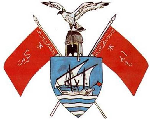Login
Support Sailonline
If you haven't already - join the SAILONLINE YACHT CLUB!
Please also consider making a donation - all amounts are greatly appreciated!
Page: Previous 1 2 3 4 5 6 Next
|
Posted by NZL_Scotsman |
|
|
I've had a go at developing 76t's handicap / performance system. The attached spreadsheet has several worksheets.
This is only based on 8 races held this year so far, and the top 150 in each race. This would need populating with more races, but hopefully this gives a good idea of what I've been playing around with. The performance / handicap rating is initially established through 5 races (in this case 441, 443, 282, 437, 442). A better developed system would take your first 10 ten races (or whatever number we decide on) as the starting handicap. I just did it this way to have something to get going with. So some boats have average of 5 results, others have less. The per race rating is based on the ratio your result (finish time) is slower than the winner. i.e. the winner has rating 1. 1 is the best you can achieve. Winston has this as he won all the races in the initial rating. Once the initial rating has been established, future races can have a handicap result ranking and a boat performance rating. Look at sheet 438 (scroll to the top if it opens lower down). Column A is the race result ranking (line honours). L is the race result as a ratio of the winner. O is the handicap based on the average of the initial races. The performance is determined by comparing your race rating to your handicap. A higher number is better. P is the adjustment based on your race performance. If you beat your handicap, then it is increased - see column Q (I've just chosen 10% of the difference for this example). Your handicap does not decrease for a bad performance. This avoids DNF or cruising affecting the long term handicap. Finally, the handicap results can be determined, which is shown on column T. I'll keep playing with this, but have a look and let me know what you think. If we are keen on this system, then we'll need a hand with some of the programming aspects. --- Last Edited by NZL Scotsman at 2012-02-21 11:10:36 --- |
|
|
Posted by NZL_Scotsman |
|
|
I've been doing more analysis of the race results from last year. So far I've analysed the first 20 races out of about 90. The aim of this is to establish the baseline handicaps for going forward. I thought I'd share some thoughts as I've been doing this.
1) How many races should make up the baseline? I'm assuming 10 at the moment. From last years results, if a boat did more than 10 races then I've averaged the top 10 results. 2) For boats that are new or don't race as much, should the handicap be provisional until a certain number of races are complete, for example 15 or 20? 3) Should we ignore results below a certain time, for example outside 25% of the winning time? 4) Should certain races be considered more important, for example ocean races? Any comments welcome. |
|
|
Posted by A2  |
|
|
First let me state that I have no experience with handicapping systems and the like but in principle I support its aims.
As for weighting the results I think the number of boats (that actually race) and the composite strength of the participants in the field should be factored in. None so blind |
|
|
Posted by 76Trombones  |
|
|
I think A2 has the right idea when it comes to weighting races and adjusting vs boats sailing.
I've played a bit with a couple variations of what I posted earlier, but have recently been thinking about (but not seriously trying to work out the details of) the following: ELO - style system where for each race your time-on-handicap is compared to that of every other boat racing and an adjustment made based on relative performance. Only boats that improve their rating get taken into account. In order to rate faster you have to beat a boat that has also rated faster... I'm not quite sure of the implications of the second rule. Maybe performances near-handicap could be included? We need a way to exclude cruisers, unlucky sli etc or else the handicaps become a dis-incentive to race more frequently. |
|
|
Posted by Tazumaki |
|
|
Regarding unlucky SLI's, missed Wx's on TWA or whatever may completly ruin a race. I had a couple of thoughts how to handle that for a Handicap.
But i didn't get any idea how to judge a wrong but continously and ambitious sailed Strategy from a SLI, an oversleped Wx, a lost connection or even cruising mode. Leaving bad races out might lead to frustrated Beginners with one luckily achived good Position unable to get down to more suitable ranking while it simultaniously leads to suitable Handicaps for skilled but lazy Navigators. Counting all races will have similar more or less unwanted Sideeffects. And at least there will be two Groups of People; one that is willing to see how they are doing against very skilled Sailors with high-power Computers and very expensive Software in one specific Race and another Group willing to get the lowest possible Handicap in order to look like beeing skilled. So i got to the conclusion that there is no right or wrong Formular and no Formular better than others. I would suggest to compute both and let Folks decide which they will use for themselves. |
|
|
Posted by 76Trombones  |
|
|
Most of the systems I've considered have relatively slow response rates. A boat that "got lucky" would have to do it 10 or more times in a row to bias their stat too much. At that point I'd start to argue that getting lucky is one of their skills/strategies
There will be variations due to different approaches. Boats that "swing for the fences" mix big wins with big losses, even if they aren't cruising. What I'm proposing would handicap their potential, rather than the average. Boats that always do about the same are more likely to handicap out near the middle of the fleet more often. In both cases, the SPH tells you quite a bit about how you did vs yourself for each race. The comparison vs the fleet is interesting too, but I see improving your own stat to be the primary goal, rather than winning on handicap. For a top 20 boat to win on handicap would require a stunning race (it's been done). A top-half result on handicap lets you know that you sailed a good race. A race that changes your handicap lets you know that you sailed a great one - from a personal best pov. |
|
|
Posted by NZL_Scotsman |
|
|
I did think of weighting the performance handicap rating based on number of sailors. However, this is a bit tricky as we need to consider:
a) number of starters b) number of finishers (this depends on the cut off, typically about 50% actually have a finish time) c) does it make a difference if the top ranked players turn up? |
|
|
Posted by NZL_Scotsman |
|
|
To explain a bit more how the rating might change based on results: I mentioned 10% before. This would mean that the rating would increase 10% of the race result.
For example, say your rating is 0.9. This would mean that you typically finish about position 100. Say you have a blinder and win the next race on line. The race result would be 1.0 so the difference is 0.1. 10% of that is 0.01. So the new rating becomes 0.91. You would need to win 8 races to get up to 0.95 and 23 races to get to 0.99. Based on the first 20 races last year, our top ranked player winston has a rating of 0.999. Karmafish (#10 in rankings) has 0.989. The wonderful rainbowchaser has 0.970. We may decide to vary the 10% rating improvement factor based on type or race or number of sailors. Just using this as a starting point for discussion. |
|
|
Posted by A2  |
|
|
If I understand it the performance aspect of the raw data is based on a time comparison expressed as a percentage.
76T & Scotsman certainly are more qualified to deliver a final product that suits this venue, all things considered. I do have experience with another approach to the dataset that I would like to develop in parallel to see if it merits further consideration. Namely converting the elapsed times into an Indexed rating. The slowest finishing time in the sample would be given a value of zero, the winning time a one and those in between a corresponding proportional value. This then indexes the margin of victory as a basis of comparison rather than the overall elapsed time. Perhaps it will yield the same results but I think that it would be a good way to evaluate races of varying lengths. Comments welcome. None so blind |
|
|
Posted by 76Trombones  |
|
|
I've been trying to do that, but picking a lower point gets tricky quickly. Different races have different numbers of boats, different strengths of boat, and different "difficulty" of course.
I'm messing about with the "use everybody that sailed at or above handicap" to try to define the fleet used for calculations. |
Page: Previous 1 2 3 4 5 6 Next
Please login to post a reply.Races
Next Race: 00d 00h 00m
Current Races:
South China Sea Race 2026
Welcome all to the South China Sea and a virtual chase in Cookson 50’s of the Rolex South China Sea fleet, racing 650nm – as the local red-footed booby flies – from Hong Kong to Subic Bay on the southern tip of The Philippines’ Luzon Island. Chances are it will be a fast downwind ride, so see how you can keep up with the real-life fleet which we hope to be able to follow on our monitors.
Race #2016
INFOby brainaid.de
Cookson 50 PARTICULARS
WX Updates:
0430 / 1030 / 1630 / 2230
Ranking: SUPBUD - SYC
Race starts: Mar 04th 03:20 Registration Open!
GO TO RACE
Iceland to the Falklands 2026

Race #2010
INFO by brainaid.de
Maxi Trimaran PARTICULARS
WX Updates:
0430 / 1030 / 1630 / 2230
Ranking: OCQ1 - ROW - OCCH - SYC
Race starts: Mar 02nd 11:00 Registration Open!
GO TO RACE
SSANZ Round North Island Race 2026 - Leg 1

Race #2011
INFO by brainaid.de
Sun Fast 3600 PARTICULARS
WX Updates:
0430 / 1030 / 1630 / 2230
Ranking: RNI - SUPBUD - SYC
Race starts: Feb 28th 21:00 Registration Open!
GO TO RACE
San Diego to Puerto Vallarta 2026

Race #2015
INFO by brainaid.de
Santa Cruz 70 Particulars
WX Updates:
0430 / 1030 / 1630 / 2230
Ranking: SUPBUD - SYC
Race starts: Feb 28th 20:00 Registration Open!
GO TO RACE
New Ice Age 2026 - Browerville to Longyearbyen
Our 2026 long-distance ice-boating challenge continues with a second race in Arctic waters, now from Browerville, where we arrived less than a month ago, continuing east, back to Svalbard’s Longyearbyen, leaving Canada’s Ellesmere Island to port and Denmark’s Greenland to starboard. It’s about 2500nm, which, if there’s wind at all, should, well-wrapped in your DN-cockpits, not take you more than a day or three, thus to complete your first (of several) online circumnavigation of the planet of 2026!
Race #1969
INFOby brainaid.de
DN PARTICULARS
WX Updates:
0430 / 1030 / 1630 / 2230
Ranking: NIA - SYC
Race starts: Feb 19th 07:00 Registration Closed
GO TO RACE
Doha Basra TIMED Race 2026

Race #2008
INFOby brainaid.de
First 40.7v2 Particulars
WX Updates:
0430 / 1030 / 1630 / 2230
Ranking:
TRQ1 - TRCH - SYC
RACE CLOSE: Saturday,
28 February at 23:00 UTC
Race starts: Feb 15th 12:00 Registration Open!
GO TO RACE
Beketov by Balloon 2026 - In Siberia
Way-back-when France and England, and Spain as well, were squabbling about who should control what of North America, only to lose the most of it to their own insurging colonists, their eastern European neighbour empire, Russia, was quietly assimilating vast, thinly nomadically populated territory of its own – Siberia! Amongst the many explorers and adventurers that served Russia so well in these conquests was the Cossack hetman Pyotr Beketov. Let’s pretend we’re he and eschewing horseback, let’s travel by balloon from Yekaterinberg to Krasnoyarsk – just a short 2000km (1100nm) section of the Trans-Siberian Express’ 9289km!
Race #1972
INFOby brainaid.de
SOL Balloon PARTICULARS
WX Updates:
0430 / 1030 / 1630 / 2230
Ranking: BOL - SYC
RACE CLOSE: Wednesday,
March 4 at 2300 UTC.
Race starts: Feb 03rd 13:00 Registration Closed
GO TO RACE
SYC Ranking
Series
- SYC ranking
- 2026 TSI
- 2026 TRQ4
- 2026 TRQ3
- 2026 TRQ2
- 2026 TRQ1
- 2026 TRCH
- 2026 TQD
- 2026 SUPerBUDdy
- 2026 SSANZ
- 2026 SPQ4
- 2026 SPQ3
- 2026 SPQ2
- 2026 SPQ1
- 2026 SPCH
- 2026 SHE
- 2026 ROW
- 2026 RNW
- 2026 RNI
- 2026 RMI
- 2026 RED
- 2026 OCQ4
- 2026 OCQ3
- 2026 OCQ2
- 2026 OCQ1
- 2026 OCCH
- 2026 NIA
- 2026 MIG
- 2026 MED
- 2026 LOOR
- 2026 CCZ
- 2026 BOL
- 2026 B2B
- 2025 TS
- 2025 TRQ4
- 2025 TRQ3
- 2025 TRQ2
- 2025 TRQ1
- 2025 TRCH
- 2025 TD
- 2025 SuperSOLer
- 2025 SSANZ
- 2025 SPRCH
- 2025 SPQ4
- 2025 SPQ3
- 2025 SPQ2
- 2025 SPQ1
- 2025 SHE
- 2025 SBB
- 2025 RWW
- 2025 RMI
- 2025 RED
- 2025 OCQ4
- 2025 OCQ3
- 2025 OCQ2
- 2025 OCQ1
- 2025 OCCH
- 2025 NT
- 2025 LOOR
- 2025 DN
- 2025 B2B
- 2025 ARQ4
- 2025 ARQ3
- 2025 ARQ2
- 2025 ARQ1
- 2025 ARCH
- 2025 ABS
- 2024 TS
- 2024 TRQ4
- 2024 TRQ3
- 2024 TRQ2
- 2024 TRQ1
- 2024 TRCH
- 2024 TD
- 2024 SVF
- 2024 SUPerSOLer
- 2024 SSANZ
- 2024 SPRQ4
- 2024 SPRQ3
- 2024 SPRQ2
- 2024 SPRQ1
- 2024 SPRCH
- 2024 SHE
- 2024 RTW
- 2024 RMS
- 2024 OCQ4
- 2024 OCQ3
- 2024 OCQ2
- 2024 OCQ1
- 2024 OCCH
- 2024 LOOR
- 2024 HILAT
- 2024 GWT
- 2024 DN
- 2024 CRW
- 2024 B2B
- 2024 ARQ4
- 2024 ARQ3
- 2024 ARQ2
- 2024 ARQ1
- 2024 ARCH
- 2023 TS
- 2023 TRQ4
- 2023 TRQ3
- 2023 TRQ2
- 2023 TRQ1
- 2023 TRCH
- 2023 TD
- 2023 SVS
- 2023 SUPerSOLer
- 2023 SSANZ
- 2023 SPRQ4
- 2023 SPRQ3
- 2023 SPRQ2
- 2023 SPRQ1
- 2023 SPRCH
- 2023 SHE
- 2023 RTW
- 2023 RNI
- 2023 RMS
- 2023 PIC
- 2023 OCQ4
- 2023 OCQ3
- 2023 OCQ2
- 2023 OCQ1
- 2023 OCCH
- 2023 LOOR
- 2023 DN
- 2023 ARQ4
- 2023 ARQ3
- 2023 ARQ2
- 2023 ARQ1
- 2023 ARCH
- 2022 TRQ4
- 2022 TRQ3
- 2022 TRQ2
- 2022 TRQ1
- 2022 TRCH
- 2022 TD
- 2022 Tall Ships
- 2022 SUPerSOLer
- 2022 SSANZ
- 2022 SSA
- 2022 SPRQ4
- 2022 SPRQ3
- 2022 SPRQ2
- 2022 SPRQ1
- 2022 SPRCH
- 2022 SHE
- 2022 OCQ4
- 2022 OCQ3
- 2022 OCQ2
- 2022 OCQ1
- 2022 OCCH
- 2022 NTR
- 2022 LOOR
- 2022 CTR
- 2022 ARQ4
- 2022 ARQ3
- 2022 ARQ2
- 2022 ARQ1
- 2022 ARCH
- 2021 TRQ4
- 2021 TRQ3
- 2021 TRQ2
- 2021 TRQ1
- 2021 TRCH
- 2021 TD
- 2021 Tall Ships
- 2021 SYCQ4
- 2021 SYCQ3
- 2021 SYCQ2
- 2021 SYCQ1
- 2021 SYCCH
- 2021 SUPerSOLer
- 2021 SSANZ
- 2021 SPRQ4
- 2021 SPRQ3
- 2021 SPRQ2
- 2021 SPRQ1
- 2021 SPRCH
- 2021 Shetland
- 2021 PAC6
- 2021 OCQ4
- 2021 OCQ3
- 2021 OCQ2
- 2021 OCQ1
- 2021 OCCH
- 2021 ESRW
- 2020 TSE
- 2020 TSA
- 2020 TRQ4
- 2020 TRQ4
- 2020 TRQ3
- 2020 TRQ2
- 2020 TRQ1
- 2020 TRCH
- 2020 Tasman Double
- 2020 SYCQ4
- 2020 SYCQ3
- 2020 SYCQ2
- 2020 SYCQ1
- 2020 SYCCH
- 2020 SUPerSOLer
- 2020 SSANZ
- 2020 SRQ4
- 2020 SRQ3
- 2020 SRQ2
- 2020 SRQ1
- 2020 SPRCH
- 2020 Shetland
- 2020 RTW
- 2020 RNI
- 2020 Odyssey
- 2020 OCQ4
- 2020 OCQ3
- 2020 OCQ2
- 2020 OCQ1
- 2020 OCCH
- 2020 A3
- 2019 TRQ4
- 2019 TRQ3
- 2019 TRQ2
- 2019 TRQ1
- 2019 TRCH
- 2019 Tasman Double
- 2019 Tall Ships
- 2019 SYCQ4
- 2019 SYCQ3
- 2019 SYCQ2
- 2019 SYCQ1
- 2019 SYCCH
- 2019 SUPerSOLer
- 2019 SSANZ
- 2019 SRQ4
- 2019 SRQ3
- 2019 SRQ2
- 2019 SRQ1
- 2019 SPRCH
- 2019 Shetland
- 2019 Round New Zealand
- 2019 OCQ4
- 2019 OCQ3
- 2019 OCQ2
- 2019 OCQ1
- 2019 OCCH
- 2018 TRQ4
- 2018 TRQ3
- 2018 TRQ2
- 2018 TRQ1
- 2018 TRCH
- 2018 Tasman Double
- 2018 Tall Ships
- 2018 SUPSOL
- 2018 SSANZ Triple
- 2018 SRQ4
- 2018 SRQ3
- 2018 SRQ2
- 2018 SRQ1
- 2018 SPRCH
- 2018 Shetland
- 2018 Shackleton Challenge
- 2018 OCQ4
- 2018 OCQ3
- 2018 OCQ2
- 2018 OCQ1
- 2018 OCCH
- 2018 40CH
- 2017 TS RDV
- 2017 TRQ4
- 2017 TRQ3
- 2017 TRQ2
- 2017 TRQ1
- 2017 TRCH
- 2017 Tasman Double
- 2017 Tall Ships
- 2017 SWR
- 2017 SUPSOL
- 2017 SSANZ Triple
- 2017 SSANZ RNI
- 2017 SPRR3
- 2017 SPRR2
- 2017 SPRR1
- 2017 SPRCH
- 2017 Red Dot
- 2017 OCQ4
- 2017 OCQ3
- 2017 OCQ2
- 2017 OCQ1
- 2017 OCCH
- 2017 40CQ3&4
- 2017 40CQ1&2
- 2016 TRQ4
- 2016 TRQ3
- 2016 TRQ2
- 2016 TRQ1
- 2016 TRCH
- 2016 Tasman Double
- 2016 Tall Ships
- 2016 SUPSOL
- 2016 SSANZ Triple
- 2016 SRQ4
- 2016 SRQ3
- 2016 SRQ2
- 2016 SRQ1
- 2016 SPRCH
- 2016 RTWR
- 2016 OCQ4
- 2016 OCQ3
- 2016 OCQ2
- 2016 OCQ1
- 2016 OCCH
- 2016 Corporate Open Gold
- 2016 A3
- 2015 TRQ4
- 2015 TRQ3
- 2015 TRQ2
- 2015 TRQ1
- 2015 TRCH
- 2015 Tasman Double
- 2015 Tall Ships
- 2015 SYQ4
- 2015 SYQ3
- 2015 SYQ2
- 2015 SYQ1
- 2015 SYCCH
- 2015 SUPSOL
- 2015 SSANZ Triple
- 2015 SRQ4
- 2015 SRQ3
- 2015 SRQ2
- 2015 SRQ1
- 2015 SPRCH
- 2015 OCQ4
- 2015 OCQ3
- 2015 OCQ2
- 2015 OCQ1
- 2015 OCCH
- 2015 Aegean Rally
- 2014 Timed Races Championship
- 2014 Tasman Double
- 2014 Tall Ships
- 2014 SYC Championship
- 2014 SSANZ Trio
- 2014 SSANZ RNI
- 2014 Sprints Championship
- 2014 Scandinavian Tour
- 2014 Round The World Race
- 2014 Ocean Championship
- 2014-2015 Sailonline World Race
- 2013 Tall Ships
- 2013 SYC Championship
- 2013 SSANZ B&G Simrad
- 2013 Capt Anderson
- 2012 W Australia Regatta
- 2012 Tall Ships
- 2012 SSANZ B&G Simrad
- 2012 RNZ Two Handed
- 2012 Global Challenge
- 2012 Ecker Cup
- 2012 Black Sea
- 2012 A3
- 2011 Vancouver Island
- 2011 Tasman Double
- 2011 SSANZ B&G Simrad
- 2011 SOL Global Challenge
- 2011 SJORA Series
- 2011 Scandinavian Tour
- 2011 Round North Island
- 2011 Asian Sprints
- 2011-2012 SOL World Race
- 2010 Tasman Double
- 2010 Ouzo Rally
- 2010 Iberian Tour
- 2010 Auckland Regional
- 2009 French SOLo
- 2009 Bosphore - Bretagne
- 2008 SYCC
- 2008 -2013 SYC Week Race Championship
- 2008 -2013 SYC Week-End Race Championship
- 2008 -2013 SYC Ocean Race Championship
- 2008-2009 Sailonline Ocean Race
- 2004 LOOR
Mobile Client
SYC members have the benefit of access to our mobile/lightweight web client!

